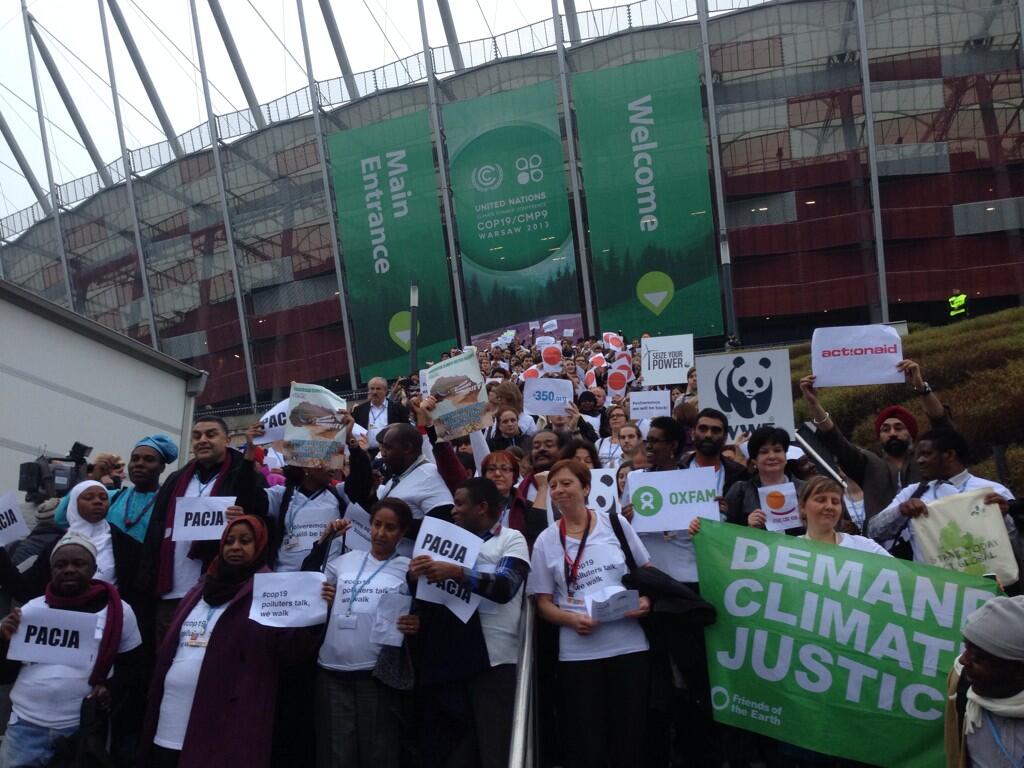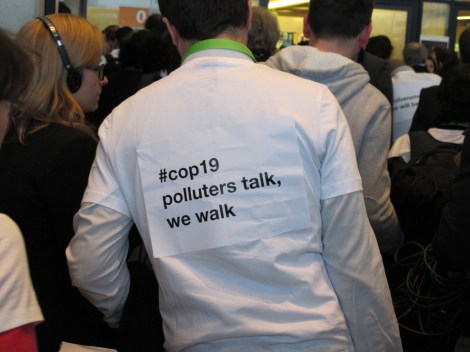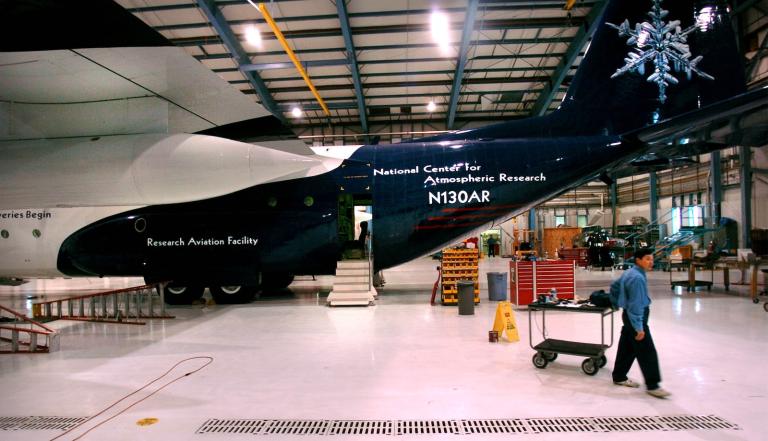WARSAW, Poland — For the first time ever, environmental groups have staged a mass walkout of a U.N. climate summit. Citing immense frustration with the lack of productive action in the COP19 climate talks, which have been dogged by a persistent rift between rich and poor countries on the responsibility of paying for climate damages, hundreds of people from dozens of environmental groups and movements from all corners of the Earth have voluntarily withdrawn from the talks. According to a spokesperson for Oxfam, around 800 civil society members (which is the label applied to all advocate and activist types at these meetings) have walked out. In a joint statement, group leaders offered that “the best use of their time” was to now focus “on mobilizing people to push our governments to take leadership for serious climate action.”
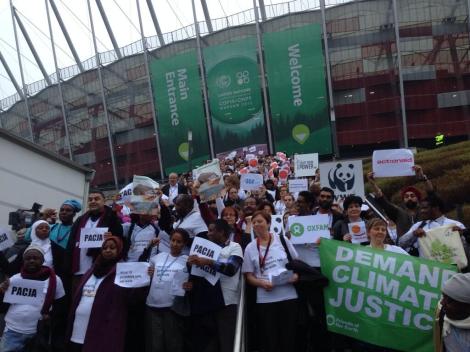
“Polluters talk, civil society walks.”
Participants in the walkout — which included members and organizers from Oxfam, Greenpeace International, 350.org, WWF International, the International Trade Union Confederation, ActionAid International, Friends of the Earth Europe, and dozens of other groups large and small from around the world — assembled just after lunchtime outside the main food court in the National Stadium that is hosting the meetings. After statements from the heads of a handful of international orgs, including Kumi Naidoo, executive director of Greenpeace International, members of civil society headed for the exits.
“The real hooligans are the CEOs of fossil fuel companies,” Naidoo told the crowd.
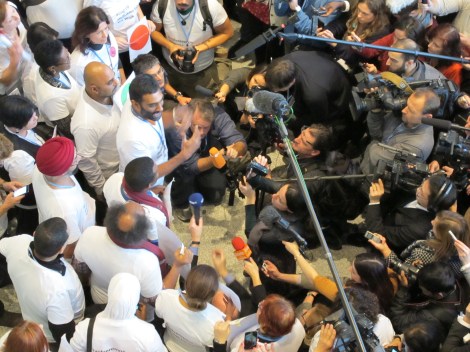
Brendan DeMelle/DeSmogBlogKumi Naidoo of Greenpeace directing people to the exits.
In the joint statement, the groups said, “enough is enough,” but insisted that they were not walking away from the United Nations Framework Convention on Climate Change process entirely, promising to return for COP20 in Lima, Peru, in 2014.
Some delegates even offered words of support to the activists gathered in front of the food court. “I’m here to support your courage,” said Tosi Mpanu-Mpanu from the Democratic Republic of Congo, a key negotiator at the talks and former chair of the African Group.
Jamie Henn of 350.org offered this statement:
It’s powerful to see groups from across civil society coming to the same conclusion that in order to keep open any hope of an international climate treaty, we need to challenge the power of the fossil fuel industry. By walking out of COP19, we’re walking into a fight with the real enemies to progress: the coal, oil and gas companies that have a stranglehold over our governments and economy. It’s time to stop sitting in negotiating halls and stand with the Philippines and millions more who are calling for real climate action in the aftermath of Typhoon Haiyan.
Henn invited similarly frustrated citizens outside of Warsaw to attend one of hundreds of candlelight vigils this evening, which have been organized by 350.org all around the world.
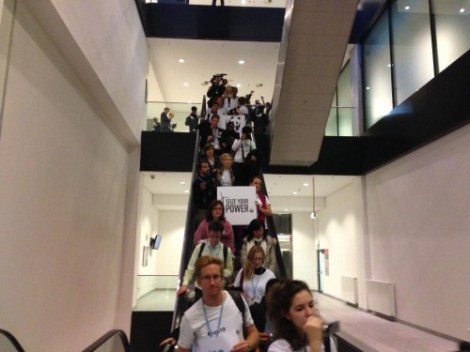
The protesters were lucky to find their way out of the National Stadium labyrinth.
Not every environmental group at the climate talks left the building. The Climate Action Network is an international coalition of over 850 member groups. Some CAN members have stayed and some have left. A rep from CAN said that the umbrella group “supports the spirit in which it was made.” But the organization also supports member groups like the Natural Resources Defense Council, who have kept a presence at the talks in order to continue to advocate for important decisions that still could be made, such as a legal mechanism for dealing with loss and damage, one of the key sticking points of these talks.

